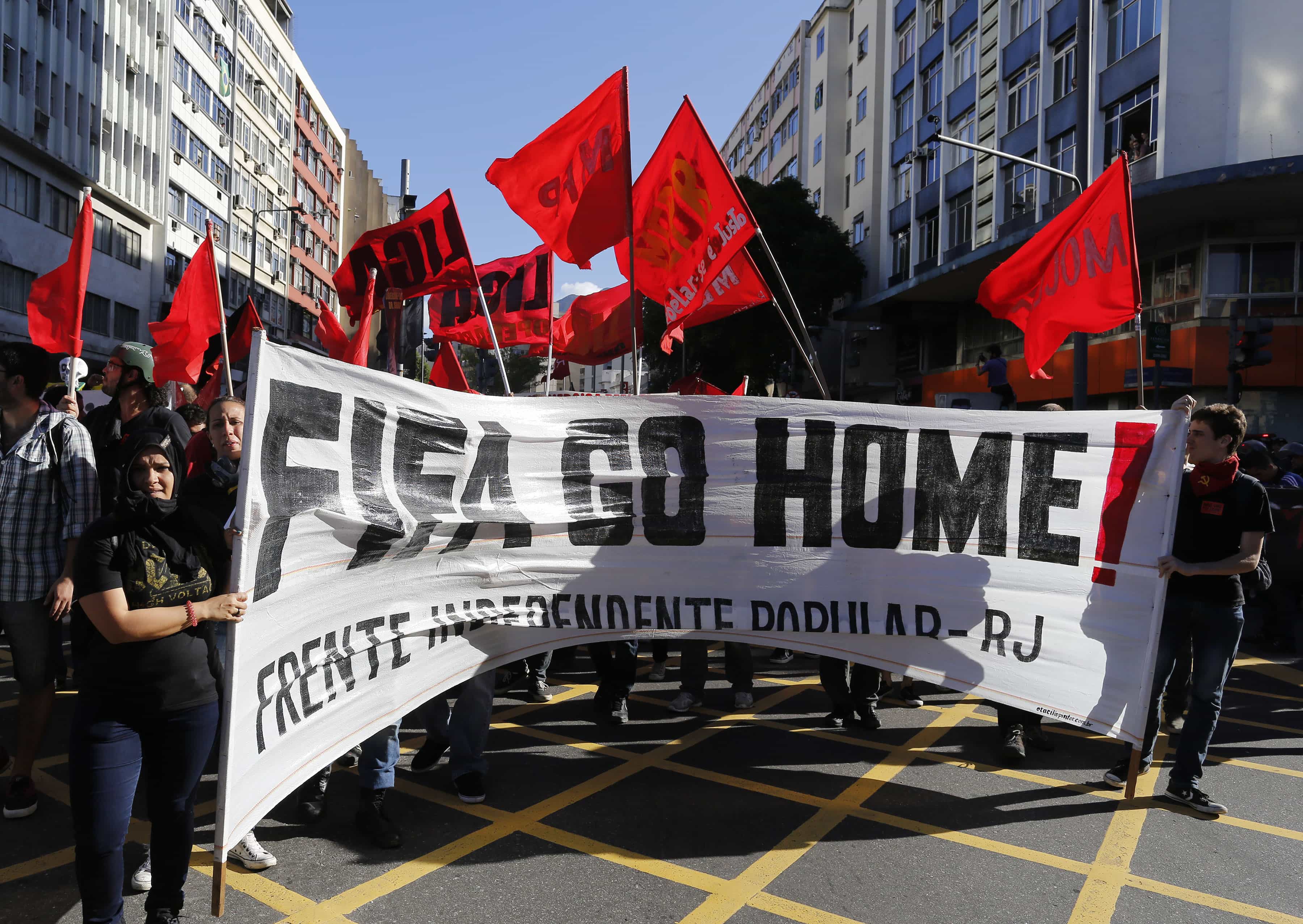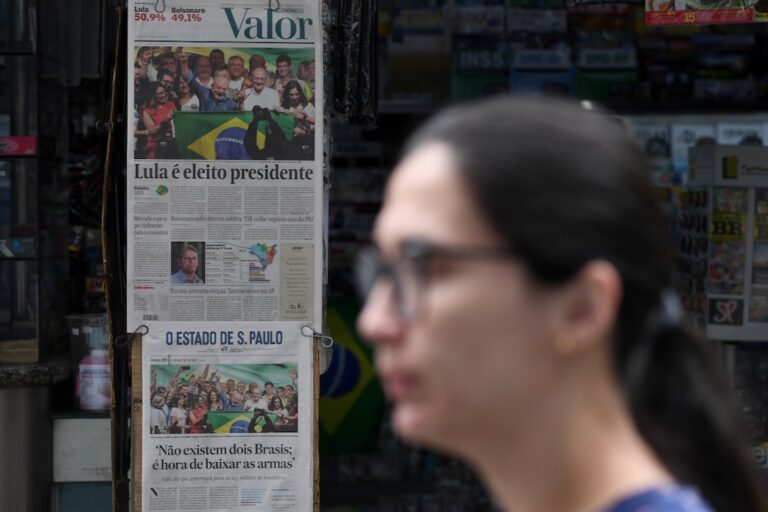It's inevitable that some of the world's attention will shift away from Brazil, so IFEX members are calling on the country's authorities to finally implement safety measures that could have prevented attacks on journalists during the World Cup.
The World Cup has come and gone, and the biggest losers are not the teams who went home without the cup, but rather the numerous journalists and protestors who were attacked and detained during the month-long tournament. It’s inevitable that some of the world’s attention will shift away from Brazil for a while – at least until the 2016 summer Olympics – so IFEX members are calling on the country’s authorities now to finally implement safety measures that could have prevented the attacks.
The assaults on media covering the protests made the headlines even before the World Cup started, and continued to the day of the final game, 13 July – the single worst day of the tournament for journalists, with 14 attacks during a protest in Rio de Janeiro, all carried out by police.
Local organisation Abraji (Associação Brasileira de Jornalismo Investigativo) documented 38 instances of violations against journalists during the World Cup. They noted that 89% percent of those violations were carried out by police, following a trend in attacks on the media that has been going on since June 2013.
During a meeting at the presidential palace in Brasilia during the week of 7 July, Reporters Without Borders (RSF) secretary-general Christophe Deloire was told that the government does not have direct control over the military police, the same forces that were responsible for some of the attacks during the protests.
One media worker attacked by military police just before the final game was Canadian documentary filmmaker Jason O’Hara. His case is emblematic of the unprovoked beatings and disregard for the media that have been all too common on Brazilian streets. O’Hara was changing a memory card in his camera when he was attacked by a group of riot squad officers. His injuries landed him in hospital needing stitches to a wound in his leg. He had been filming protests for a documentary about forced evictions related to the World Cup and the 2016 Olympics in Rio.
Camille Soulier, the head of the RSF Americas desk, said her organisation urged “the authorities to ensure that the acts of violence against journalists by members of the military police do not go unpunished.”
A few incidents against the media have seen justice. Four members of the Rio police force were suspended in the week following the final game after a video of them attacking a group of journalists during an anti-World Cup protest went public.
IPI and others are calling for more to be done to protect journalists. In March, recommendations drafted by a coalition of Brazilian press freedom groups, including Abraji and another IFEX member, Article 19, were approved by the then presidential Human Rights Secretariat, Maria do Rosário. Unfortunately, none of the government bodies slated to implement the recommendations have done so.
Vanessa I. Garnica, IPI Press Freedom Adviser for Latin America and the Caribbean, said “IPI is extremely disappointed by the government’s failure to implement the recommendations of local press freedom groups (…) that could potentially avoid unnecessary attacks on and detentions of journalists.”
A plan for a body that will monitor violence against communications workers in Brazil has been set in motion, pending the signing of an ordinance by the current Human Rights Secretariat, Ideli Salvatti, and Justice Minister Jose Eduardo Cardozo. The question is when it will materialize – meetings set for 24 June and 22 July were postponed, leaving the country’s media at the mercy of the current system, at least for now.



